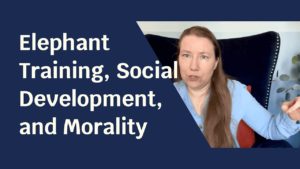It’s about energy
After my post on the warning signs of autistic burnout, I should probably clarify what autistic burnout is.
This isn’t going to be a thorough exploration of the topic, just a primer. There are many other autistic advocates who have spoken and written very well on subject, and I encourage you to seek them out.
In short, autistic burnout is essentially burnout like anyone else experiences it, with a few aspects unique to our neurology, but the causes, and how you recover from it, are different.
Autistic burnout is a state where you’ve been masking, ignoring, or adapting, your real autistic (and personal) needs and reactions and limitations for too long, by pushing through, doing too much, working too hard, or under too much stress or strain, that your body and brain are so drained that they can’t offer you energy and functionality at the level that they have been anymore. They shut down, crash, collapse, lose functions, however you want to describe it.
Some people describe it as hitting a wall, others as a well that runs dry, yet others as being sucked into a swamp or black hole.
Some people describe it as hitting a wall, others as a well that runs dry, yet others as being sucked into a swamp or black hole.
Sometimes you feel it coming on gradually, and sometimes it hits all at once and suddenly you can’t do anything—though there were usually warning signs that it was coming and which you may not have noticed, or ignored, or pushed through because you’re not used to looking for them, or you weren’t raised in a family or culture that valued paying attention to those warning signs, or that valued productivity more than self-care, as is so common.
When you’re autistic, the energy drains tend to come from a few common sources.
Social
This could mean too much socializing, or others expecting you to socialize in ways that are uncomfortable for you. Or being around people who are negative, or who are not supportive of your innate neurotype.
That might look like people trying to get you to be normal, or to act like everyone else. Or trying to get you to function at a level that you’re simply not capable of at the time, or without the support you would need to do so.
These situations may be toxic or abusive, but aren’t necessarily. A persistent, low level message of “you should be better/different than you are” can be very damaging to the psyche over the long term.
Likewise, the pressure to conform, to be like someone else, or everyone else, or to fit in, can can take a heavy toll over time.
Sometimes these pressures look outwardly positive and rewarding. Getting praise when you do things the way they want, when you take on jobs or tasks they want you to do, when you load yourself up with responsibility, when you work hard or late or accomplish a great deal. But it all comes at great personal cost.
Sensory
Energy drains also come from sensory stuff. When you’re in an environment that is overwhelming to your senses, it drains your energy, even when you’re so used to that environment that it feels normal to you.
If you are used to it, it can be especially difficult to notice that it’s overwhelming you precisely because it is so normal. It’s like how fish don’t notice the water because it’s simply always there.
Sensory drains can be anything from lighting, colors, sounds, smells, unexpected movement (children especially tend to be less predictable), and more. It could come from simply being around other people in your household and the normal noises and smells and movement that comes from existing in the same space as other people or animals.
Thoughts
Another huge energy drain comes from inside ourselves. By this I mean a few things, starting with the negative self-talk that many of us learned as we grew up (whether autistic or not).
It includes the painful thoughts that feel like truth, such as seeing ourselves as broken or not good enough.
It also involves internalized ableism, which could look like believing that you ought to be able to do X, Y, or Z merely because other people do it.
Holding yourself to inappropriate standards can be incredibly harmful as you turn judgments back in on yourself.
I think this category of energy drains is the most insidious because it’s often the hardest to recognize. And these painful thoughts feel so true that we accept them without deeply questioning them. But what we end up with is a situation in which we are fighting ourselves.
If you believe that you should be able to do X, but you physically can’t do X, you may end up trying and failing and getting on your own case or emotionally abusing yourself for something that you can’t do, not something that you did that was morally wrong.
We turn a simple physical fact into a matter of personal failure, and then criticize ourselves for not doing what we can’t do. And that internal struggle uses up so much energy.
We turn a simple physical fact into a matter of personal failure, and then criticize ourselves for not doing what we can’t do.
The energy drains add up
Autistic burnout can come from these and other energy drains. But whatever it is that’s sucking your energy, you’ve been using too much of it for too long and your body doesn’t have any reserves left.
So at some point, in a last ditch effort to preserve itself, your body physically shuts down. It says “no, I can’t do the things that have been hurting me anymore.”
And it’s not going to get better until enough of the things that have been draining your energy change.
In another post, I’ll introduce my ideas on how to make those changes, which is, how recover from autistic burnout.
What have been your experiences with autistic burnout? You’re welcome to share in the comments section below.




